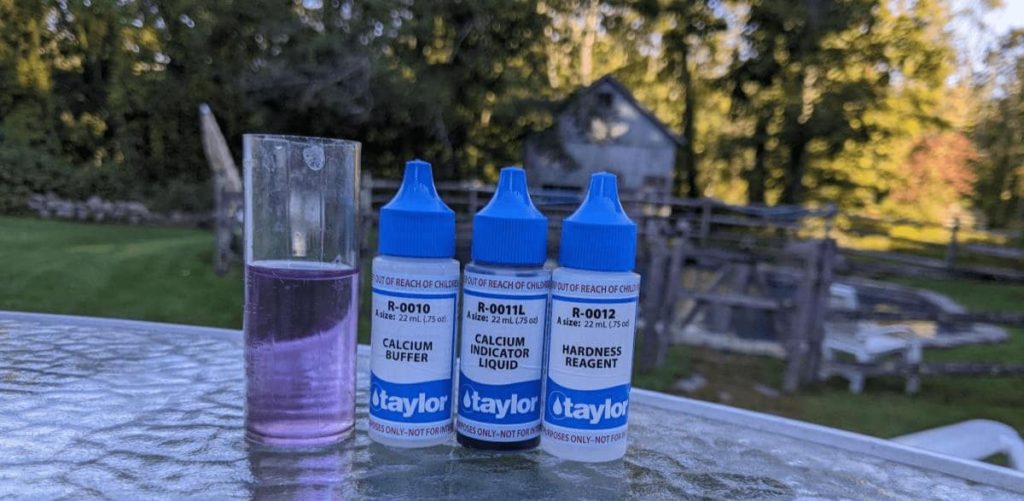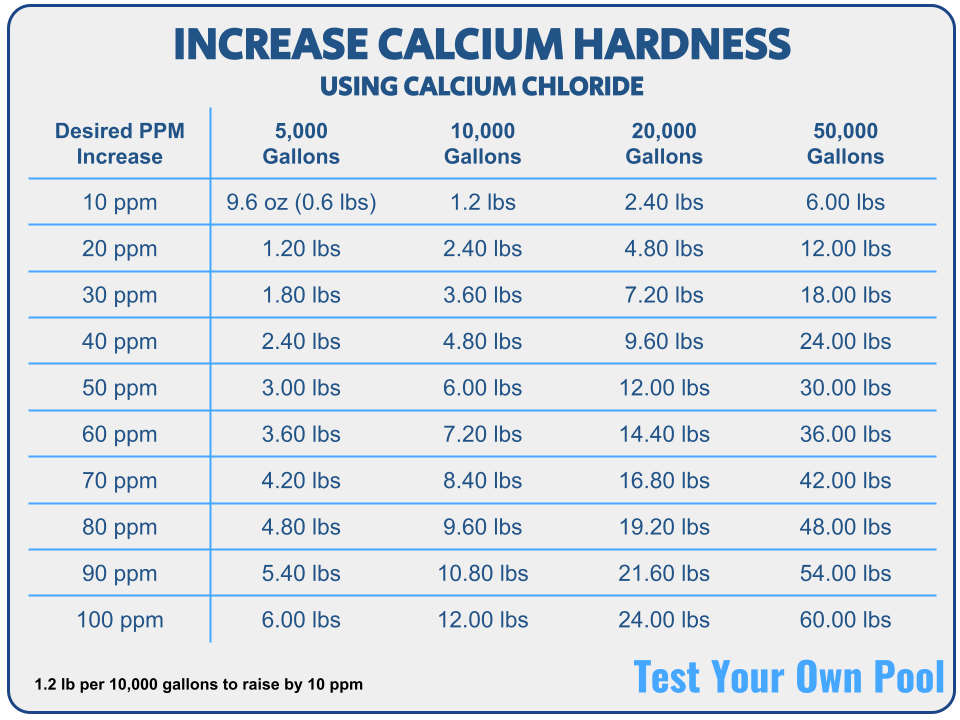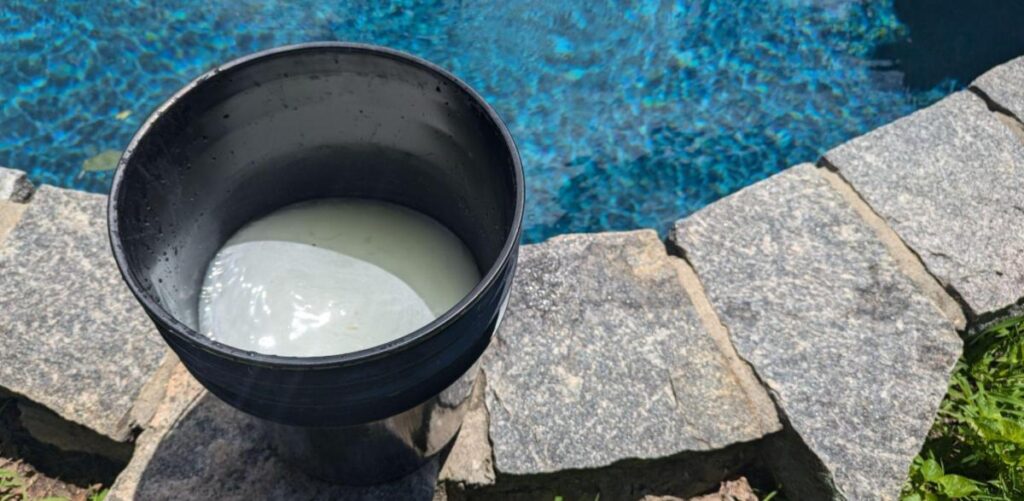For homeowners in a snowy and icy climate, calcium chloride is used as a deicer to clear driveways and walkways to the home. It also has another use in the summer. For pools, calcium chloride increases and maintains calcium hardness (CH) levels.
For plaster or concrete pool owners, calcium in water is one of the more overlooked chemistry parameters that can be very damaging to the pool’s surface and equipment.
What is Calcium Chloride Used for in Pools?
Calcium chloride is a salt compound comprising calcium and chlorine. Not surprisingly, It’s widely used in pools to increase calcium hardness.
The right calcium level in the water is essential as it helps protect the pool’s surfaces and equipment from corrosion and scaling.
Where to Buy Calcium Chloride?
Calcium chloride can be purchased online or at virtually any big box and hardware store. If you go to a pool store, you might see products like hardness increaser or hardness up. Look at the ingredients, and you will see that they are almost 100% composed of calcium chloride.
Calcium chloride is commonly sold as de-icers and ice melts. Buying bigger buckets of a de-icer is more cost-effective than anything at the pool store.
When buying, look at the ingredients to check that it’s as “pure” as possible (close to 100% calcium chloride) and contain no additives.
Typically, products that contain heat may contain more magnesium or salt than pure calcium chloride.
Using Calcium Chloride to Increase Calcium Hardness
If CH levels start to get too low, it’s time to get some calcium chloride handy and get ready to add it to the pool.
For plaster pool owners, calcium hardness should be between 250 to 550 ppm. Vinyl and fiberglass pools don’t necessarily need to worry about calcium levels. Just make sure you don’t go over the recommended level.
Some equipment manufacturers may require a minimum ppm of calcium to maintain their warranty, so always read your warranty information.
How Much Calcium Chloride to Add to Pool
Determining how much calcium chloride to add to your pool depends on the size of your pool and current calcium levels through testing.

For every 10,000 gallons of water, adding about 1.2 pounds of calcium chloride will increase the calcium hardness by 10 ppm. As you can see, you may need quite a bit of calcium to increase to the necessary levels!
Use our calcium hardness calculator to get a better idea of how much will be needed. Or refer to the chart below for rough estimates.

How to Add Calcium Chloride to the Pool
When adding calcium chloride to your pool, it’s recommended to pre-dissolve into a bucket. Take precautions, however, as it will get extremely hot in the bucket. Always ensure safety by wearing gloves and goggles.
- Fill a Bucket 3/4 Full of Pool Water. Make sure the bucket can withstand heat. Plastic construction buckets are highly recommended.
- Slowly pour and mix the necessary amount of calcium chloride into the bucket. You most likely will need to repeat these steps depending on how much calcium chloride is needed
- Stir until the calcium chloride is completely dissolved. It will get extremely hot so use caution
- Slowly pour the bucket in front of a return jet in the deep end. If any particles reach the bottom of the pool, use a pool brush and brush the surface until it is fully melted. Undissolved calcium can leave permanent marks.

What Happens if I Add Too Much Calcium Chloride?
You want to be very, very careful when adding calcium chloride to your measurements.
The only way to lower calcium levels is to partially drain and refill the water, which is not ideal. This is why a proper pool kit is needed for accurate and reliable testing!
Conclusion
Calcium levels will not increase unless calcium has been added to the pool. Crazy, right?!
Test your calcium levels weekly, especially after rain or another event where fresh water is added, adjust the calcium levels as necessary, and enjoy the pool!

